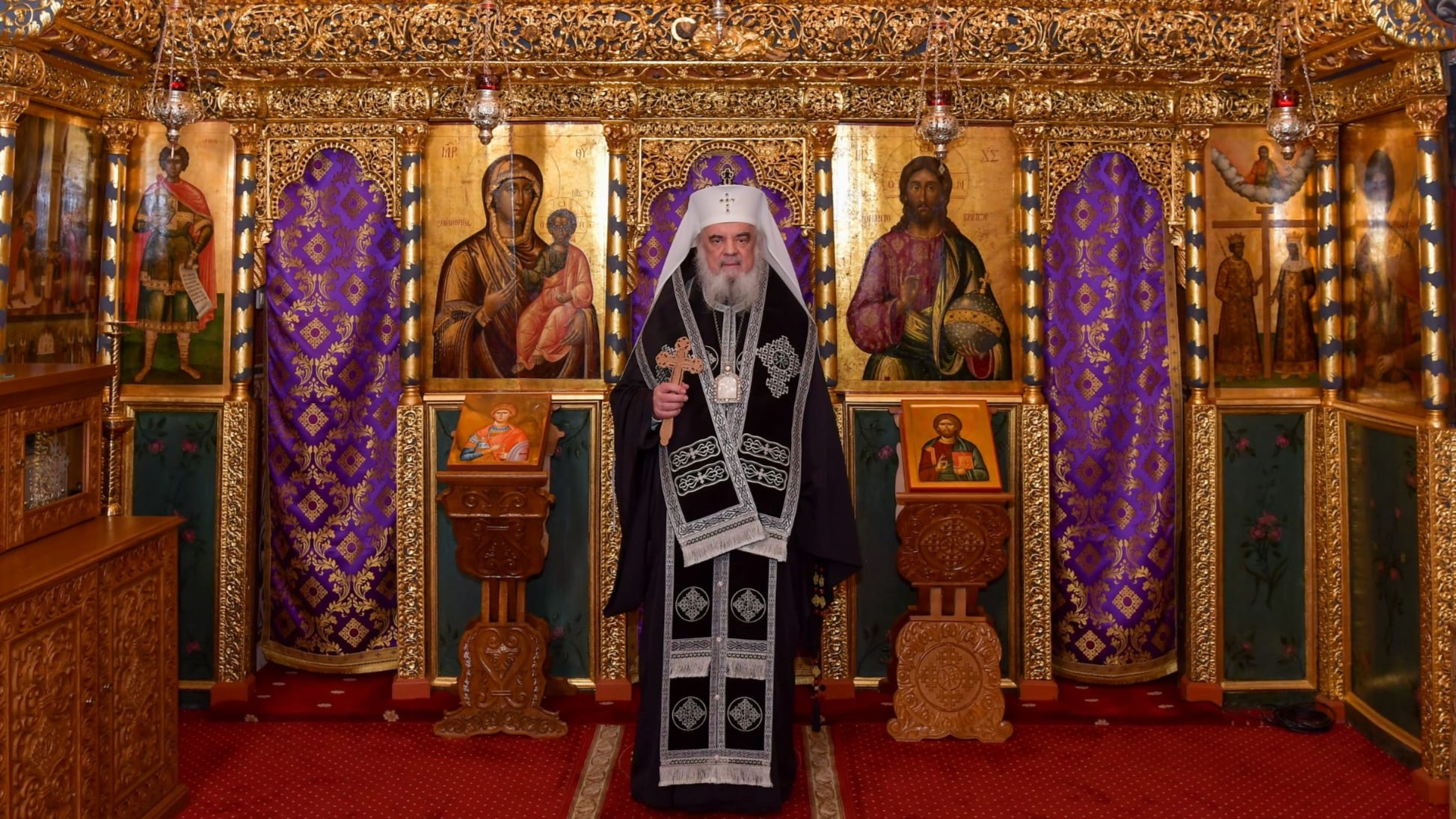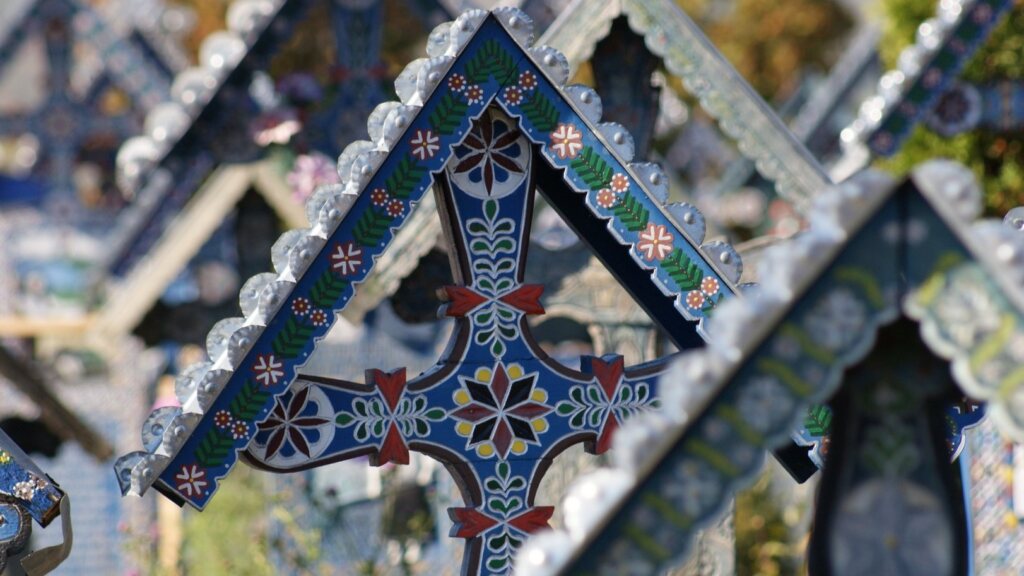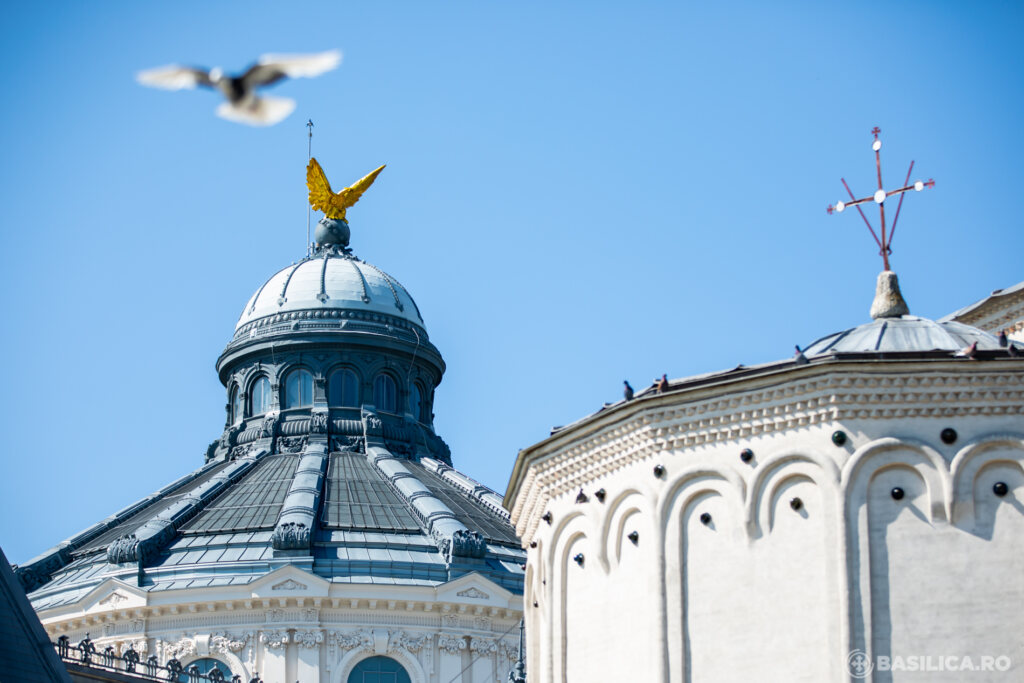After officiating the Great Canon of Saint Andrew of Crete at the chapel of the Patriarchal Residence, His Beatitude Patriarch Daniel said that “this rich hymn in the guise of the Church’s prayer urges us all to discover through repentance a source of peace and joy.”
Repentance does not lead to despair
“There are people who regretted their bad deeds but did not confess and fell into despair; some of them even committed suicide. The repentance in the Canon of St Andrew of Crete and the entire Holy Scripture does not lead to despair. It is a humble repentance accompanied by the humble prayer for forgiveness.”
“We ask for forgiveness, and we hope in Christ’s mercy because He enabled the thief on the cross to enter heaven without any personal merits, only because he repented,” Patriarch Daniel noted Monday evening at St George’s Chapel of the patriarchal residence.
His Beatitude Patriarch Daniel explained that the sin described by the Great Canon is not the sin of a single person but the sin of the entire fallen human nature: “Our forefathers Adam and Eve have sinned through their disobedience to God, by lack of self-control – because they did not fast, repent or ask for forgiveness. Adam blamed the woman, and the woman blamed the snake. From then until now, a sinful man tends first to excuse himself and accuse others.”
“The Lenten season means to judge ourselves, to recognize our mistakes without accusing others,” His Beatitude said.
The Church’s rhythm and breath
His Beatitude Patriarch Daniel called the Lenten season “a spiritual school, an exercise in the awareness of the fact that human nature inclined to sin needs lifting and that this lifting is done first by asking for help from God.”
That is why the publican’s prayer is so often repeated: “God, be merciful to me, a sinner!” or “Have mercy on me, O God, have mercy on me!”
“The state of repentance accompanied by the invocation of God’s grace and mercy become the rhythm and breath of the Church for 40 days.”
“During this period, the whole Church is fasting, not just some people, because the state of sinfulness belongs to the whole human nature,” Patriarch Daniel added.
The body participates in the repentance of the soul
His Beatitude emphasized that the clergy pronounced services during this period in blackened vestments and the prayers are accompanied by prostrations: “These are the sign that the body also participates in the repentance of the soul.”
“Prostrating or bowing down is the acknowledgement of one’s own sins which come as excessive attachment to earthly things, and lifting shows the hope that the grace of God will help every sinner who sincerely repents to rise.”
The Great Canon of St. Andrew of Crete is officiated in the first four days of Lent in four parts, during the Great Compline and, in its entirety, on Wednesday, in the fifth week of the Great Lent.
Photography courtesy of Lumina Newspaper
Follow us on Twitter: @BasilicaNews






